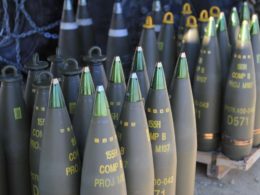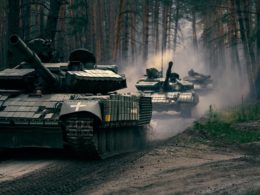German Chancellor Olaf Scholz arrived in Kyiv on 2 December for an unannounced visit, reaffirming Germany's commitment to supporting Ukraine in its ongoing conflict with Russia.
During his first visit to the Ukrainian capital in two and a half years, Scholz pledged additional military aid worth 650 million euros ($683 mn).
"I want to make it clear that Germany will remain the strongest supporter of Ukraine in Europe," Scholz said upon his arrival by train.
He emphasized the significance of the visit as a gesture of solidarity with a country that has been defending itself "in a heroic manner against the merciless Russian war of aggression" for over 1,000 days.
According to German government sources, the country has emerged as the second-largest weapons supplier to Ukraine after the United States. Since the Russian invasion on 24 February 2022, Germany has delivered or committed military equipment and weapons valued at approximately 28 billion euros ($30 bn).
The chancellor said that the country has provided more military support this year than the United Kingdom and France combined.
Scholz met with Ukrainian President Volodymyr Zelensky to discuss continued military and diplomatic support.
The visit comes at a critical time, when Ukraine is experiencing increasing military pressure, with Russian forces making territorial gains in recent weeks. The unannounced nature of the visit was attributed to security concerns, as Kyiv continues to face drone attacks from Russian forces.
Scholz's engagement with Ukraine dates back to just before the Russian invasion, with previous visits in February and June 2022.
The latter visit, alongside French President Emmanuel Macron and then-Italian Prime Minister Mario Draghi, was due to securing the Ukraine's EU candidate status.
Chancellor Olaf Scholz has firmly said that Germany will not lift restrictions on Ukraine's ability to strike deep into Russian territory. Scholz has consistently ruled out the provision of long-range weapons, including Taurus cruise missiles, to Ukraine, regardless of NATO allies' decisions. He has expressed concerns that such actions could provoke the Russian escalation.
Read also:
- Scholz slams election rival’s 24-hour ultimatum to Putin as “Russian roulette”
- Scholz admits that conversations with Putin were never pleasant
- German Chancellor Scholz vows unwavering Ukraine support amid Putin call controversy





